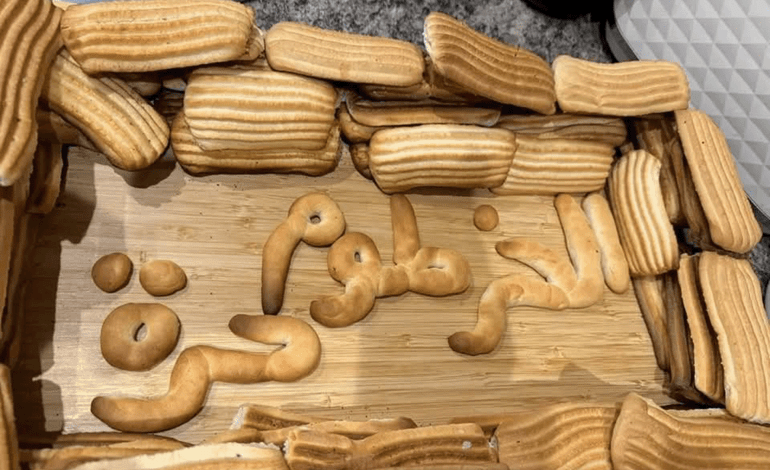The Fifth Eid: How Sudanese Welcomed It Amid War

Report – Al-Noor Ahmed Al-Noor
For the first time after four sorrowful Eids since the war broke out nearly two years ago, Sudanese people are welcoming Eid al-Fitr with hope for peace and security, anticipating the end of the crisis. They rejoice following the liberation of their capital from the Rapid Support Forces (RSF), which had overrun the areas they controlled, committing widespread violations.
Eid in Sudan has distinct features, filled with joy expressed through social gatherings, traditional activities, and special occasions where families and friends reunite. It is a time to uphold principles of forgiveness and tolerance, with men traditionally wearing white attire consisting of a jalabiya and turban. These elements give Eid a vibrant appearance, accompanied by prior preparations that add a unique flavor to the celebration.
The war erupted nearly two years ago on the 23rd of Ramadan, just a week before Eid. As a result, celebrations vanished, and the residents of Khartoum spent their Eid under gunfire, shelling, and the smoke of battles. The conflict soon expanded to Sennar, Al-Jazira, parts of North and West Kordofan, and the Darfur region, bringing sorrow and suffering along with it.
People did not experience the joy of previous Eids, as its traditions and preparations disappeared amid the stench of death. Families were scattered between displacement and seeking refuge, while security and peace remained absent.
This year’s Eid, however, arrives after the armed forces regained control over Khartoum, Al-Jazira, Sennar, parts of the Blue Nile state, and most of the territories formerly held by the RSF in northern White Nile state and several localities in North Kordofan. As a result, security has expanded across wider areas.
Hopes and Celebrations
In Omdurman, as well as cities in the north and east of the country, markets have come back to life. Traders have imported sweets and clothing from India, Egypt, Libya, and Gulf countries.
Osman Al-Tahir, a clothing shop owner in Omdurman, told Al Jazeera Net, “Clothing is available despite high prices, and there is a reasonable level of buying activity compared to previous Eids. Expatriates have helped their families by sending money to cover Eid expenses, as most people have lost their sources of income.”
Women were also seen selling baked goods in Omdurman’s markets. Salma Abdulaziz explained to Al Jazeera Net that she has been in the bakery business for 12 years but had to stop during the recent Eids. This year, however, she resumed her work.
Salma expressed that this Eid brings a different atmosphere, with a sense of security and hope for displaced people to return home. In contrast to the past four Eids, when people had no joy, this time they are once again buying sweets and baked goods to prepare for the holiday. Previously, their only concern was securing bread for their children.
In Darfur, Nyala’s markets have been bustling with shoppers. Trader Adam Issa told Al Jazeera Net that there is a strong demand, particularly from women and children, to purchase Eid clothing and other essentials.
Reversed Circumstances
Many citizens have complained about the high prices of clothing, accusing traders of exploiting the holiday by raising costs. Some have turned to purchasing second-hand clothing, locally known as “Gogo”, for their children due to its affordability and good quality, as these garments are imported from Europe through Libyan ports.
Merchant Saleh Al-Tijani told Al Jazeera Net that children’s toys and certain types of sweets, which used to come from Omdurman, have disappeared from the markets. He also noted a sharp rise in the price of dates due to the halt in trade between northern Sudan and Darfur, a restriction imposed by the RSF, which controls southern Darfur.
Meanwhile, Suleiman Abdullah, a humanitarian volunteer assisting displaced people in Al-Obeid, the capital of North Kordofan, stated that this Eid brings them a double celebration—one for the army’s success in lifting the siege on their city and another for the reopening of roads and the availability of goods. Farmers have been able to sell their produce and purchase their Eid needs.
Abdullah told Al Jazeera Net that Eid has a special flavor in Al-Obeid, where citizens have flocked to markets packed with goods, sweets, and clothing imported both domestically and internationally. However, he also lamented the high prices, attributing them to reliance on imported clothes amid the continued devaluation of the Sudanese pound against foreign currencies.
From a psychological perspective, Dr. Salah Al-Arbab explains that feelings of sadness and distress are natural during times of insecurity, financial instability, or personal loss, affecting both mental and physical health and potentially leading to more severe conditions.
Speaking to Al Jazeera Net, Al-Arbab pointed out that the army’s recent advances and the reclaiming of vast areas from the RSF have shifted negative mindsets, replacing distress with more positive thoughts. This shift has helped people prepare for Eid with renewed hope, fostering optimism for real change in the lives of many who have endured two years of psychological strain, sorrow, and depression.
Source: Al Jazeera Net



